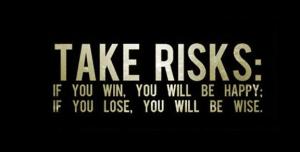 This past weekend in Toronto was the Scotiabank Waterfront Marathon that had over 25,000 participants, with a few here in the Wish Group participating as well. Even though I run every now and then and do play hockey, I have to commend runners because it’s really an entirely different beast than most sports. Where hockey is tough, fast and furious, I find that long distance running is slower but a lot more mentally involved. It’s for this reason that I think long distance running can teach entrepreneurs many practical lessons about running their business.
This past weekend in Toronto was the Scotiabank Waterfront Marathon that had over 25,000 participants, with a few here in the Wish Group participating as well. Even though I run every now and then and do play hockey, I have to commend runners because it’s really an entirely different beast than most sports. Where hockey is tough, fast and furious, I find that long distance running is slower but a lot more mentally involved. It’s for this reason that I think long distance running can teach entrepreneurs many practical lessons about running their business.
Keep A Steady Pace – This is probably the hardest lesson to learn, both for runners and business owners. While a marathon is technically a race, it’s different in terms that you can’t sprint for 42 kilometers straight right from the get go. You need to find a pace that you can maintain for the duration of the run, one that won’t burn you out but at the same time lets you set a good time. Clearly this is the same with business growth. Your business won’t grow exponentially overnight. It takes a lot of time, and you need to make the right decisions to ensure success. Once you do though, you’ll be able to watch your company grow at a steady pace.
Move Past The Walls – All of the runners I’ve spoken to have always mentioned “the wall”. It’s the mental phenomenon where you feel like you can’t continue anymore, that you don’t know why you wanted to do this in the first place, and that you can’t make it to the finish and you want to give up more than anything. How many times have you thought something similar when things aren’t going so well with your business? What’s important to realize is that the runners DO surpass that wall by believing in what they do and staying determined in reaching the finish line. There is never really a “finish line” for entrepreneurs, but that’s why I’m a firm believer in setting goals. You can consider these goals that you set as mini finish lines and just keep moving from one to the next.
Keep Improving – The best thing about running is that you set new best times for yourself and then you have a new goal to train towards, which may seem impossible the first time to set a personal best. However, with hard work you’ll be able to overcome that. See where I’m going with this? It really speaks for itself, but once you have an incredibly success quarter or year it only makes sense that you want to beat that number the next year – no matter how difficult it may seem.

 24 hours in a day – to some people it seems like that’s never enough to accomplish anything, but then there are the people who seem like they can get everything done in that time, plus still have time for their family, friends and a million other personal tasks. Your gut reaction might be to be envious of these people, but it’s not as if they’re cheating and getting an extra hour from somewhere. We ALL have 24 hours to make the most out of, which means that it really just comes down to time management.
24 hours in a day – to some people it seems like that’s never enough to accomplish anything, but then there are the people who seem like they can get everything done in that time, plus still have time for their family, friends and a million other personal tasks. Your gut reaction might be to be envious of these people, but it’s not as if they’re cheating and getting an extra hour from somewhere. We ALL have 24 hours to make the most out of, which means that it really just comes down to time management. Surely you’ve heard people mention in passing that they live by a “code”, but what does that mean exactly? While I could delve into many different territories here, something that I believe all “codes” follow is that they set certain standards and expectations.
Surely you’ve heard people mention in passing that they live by a “code”, but what does that mean exactly? While I could delve into many different territories here, something that I believe all “codes” follow is that they set certain standards and expectations. Most people tell you to learn from your failures. I’m saying that it’s important to reflect on your failures to understand where you went wrong, and I’ve even talked about it in
Most people tell you to learn from your failures. I’m saying that it’s important to reflect on your failures to understand where you went wrong, and I’ve even talked about it in  As entrepreneurs we generally want control of everything within our company, which means that when someone hands something off to us “yes” is the first thing that usually comes. That isn’t always a good thing because when you say yes without really thinking about it, things don’t always work out.
As entrepreneurs we generally want control of everything within our company, which means that when someone hands something off to us “yes” is the first thing that usually comes. That isn’t always a good thing because when you say yes without really thinking about it, things don’t always work out. The summer holidays are winding down, meaning that the hustle and bustle of regular office life will be coming back into most organizations come September. Our offices here at the
The summer holidays are winding down, meaning that the hustle and bustle of regular office life will be coming back into most organizations come September. Our offices here at the  Entrepreneurs are known as risk-takers. Whether the risk involves investing a large sum of money into a new venture or hiring a new employee, it’s critical to evaluate whether the risk is worth taking.
Entrepreneurs are known as risk-takers. Whether the risk involves investing a large sum of money into a new venture or hiring a new employee, it’s critical to evaluate whether the risk is worth taking.